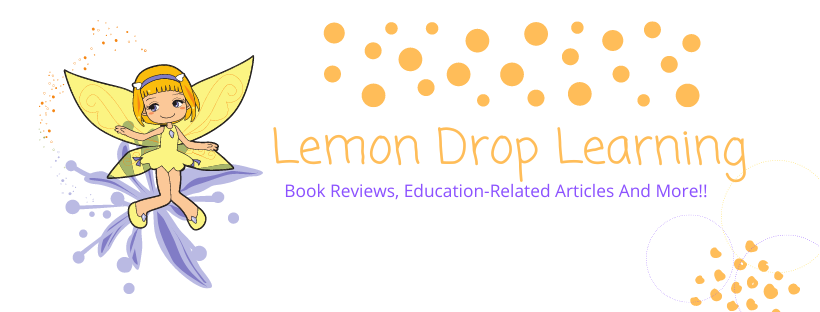Should
we still read Dr. Seuss books to our children or not? Recently for me that's
become a loaded question.
Do we want to perpetuate the underlying messages woven into his books by reading them and carry on the imaginative spirit his work inspires; the fun and frivolity with words that parents, teachers, and students have taken to heart?
Do we want to perpetuate the underlying messages woven into his books by reading them and carry on the imaginative spirit his work inspires; the fun and frivolity with words that parents, teachers, and students have taken to heart?
Or do we dismiss his work, banning it from classrooms and libraries, because of his political views during a turbulent time in American history, when certain stereotypes among white Americans were the norm?
Like
many children, my own grew up on Dr. Seuss books. Green Eggs and Ham was
my son's absolute favorite book and the first one he read by himself in
Kindergarten; one of the proudest moments of my life. I can still see
him as a toddler sitting on his bedroom floor, pulling his Dr. Seuss books off
of his shelf and carefully turning the pages.
Since the refusal of the school librarian in Boston, of Melania Trump's gift of Dr. Seuss books, I have felt it necessary to do some additional research on the prolific author. Some of my findings surprised me while others saddened me.
As part of an author study, I have done superficial research of him in the past to provide a brief overview of his life to my students. I had never read that he was a racist, so I was taken back when I heard about the Boston librarian's statement. I kept thinking how could one of the most beloved children's authors be a racist?
 |
| https://pixabay.com/en/boys-reading-children-book-kids-932821/ |
Theodor Seuss Gesiel (Dr. Seuss, Theo LeSieg, Rosetta Stone, Theophrastus Seuss) was an American author, political cartoonist, poet, artist, and publisher born on March 2, 1904. He died on September 24, 1991 at the age of 87.
He attended Dartmouth College and the University of Oxford where he assumed the pen name Dr. Seuss. After leaving Oxford, he began working for several different publications as a cartoonist and illustrator.
He also worked on advertising campaigns for Flit and Standard Oil and as a political cartoonist for PM, a left-wing New York newspaper. It seems that some of his views were in direct conflict with each other.
He supported the internment of Japanese Americans during WWII, while frowning upon anti-Semitism and the treatment of blacks in the U.S. at the same time, which is also at odds, because of his portrayal of black people as savages, wearing grass skirts, in the Flit advertisements. Could he in his white-privileged ignorance have thought that these advertisements were innocuous?
As I processed this newfound information I realized that, while it is upsetting to know that Dr. Seuss held unctuous opinions, he was a product of his generation. In the Pre-Civil Rights Era racial relations were quite different, nonwhites were shunned and segregated from mainstream society.
A sad truth that is part of our American history. In the 1940s, after the Japanese had bombed Pearl Harbor, emotions and fears were running high, the mob mentality ruled. We have witnessed this phenomenon ourselves with the mistreatment of Muslim Americans after the 9/11 attack.
Unfortunately among white Americans, Dr. Seuss's art form was accepted as the norm. Today, where most people have grown up in a more racially equitable society, they would criticize his political and advertising artwork and it would be rightly shunned. Dr. Seuss himself would agree with this consensus.
Although some of Dr. Seuss's work was controversial not all of it was negative. He did make some positive political statements in his writings that promoted diversity and cultural responsibility as well.
Horton Hears A Who, a story about democracy, isolationism, and America's postwar occupation of Japan was dedicated to Mitsugi Nakamura, a Japanese man who Dr. Seuss named, 'my great friend.' The Sneetches had its roots in his opposition to anti-Semitism, The Lorax was a parable about the environment, and The Butler Battle Book took aim at the arms race.
Like all of us, Dr. Seuss was a human being with flawed opinions. Fortunately, he realized his small-minded prejudice towards those who were different from him and changed tack. He evolved into a more accepting person that was later reflected in his work.
Should we judge a man so harshly for a belief system that he was brought up in, when he had the cognizance to recognize its failures and change himself? Could we not use his life lesson as a teachable moment about personal and societal growth?
So, should we still read Dr. Seuss's books to our children or not? Ultimately the decision is a personal one.
Sources and sites for further
reading:
http://www.masslive.com/news/index.ssf/2017/10/andy_yee_dr_seuss_chinese.html
http://pittsburgh.cbslocal.com/2017/10/08/dr-seuss-racist-painting/
http://www.pbs.org/independentlens/politicaldrseuss/film.html
https://en.wikipedia.org/wiki/Dr._Seuss
https://www.inquisitr.com/4526060/dr-seuss-books-racist-explained/
